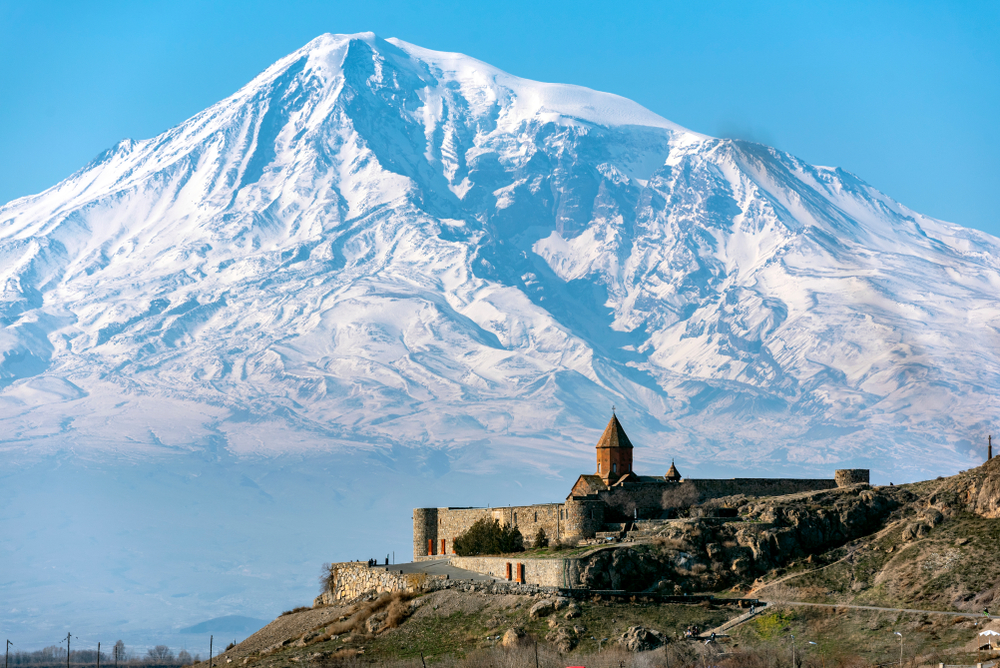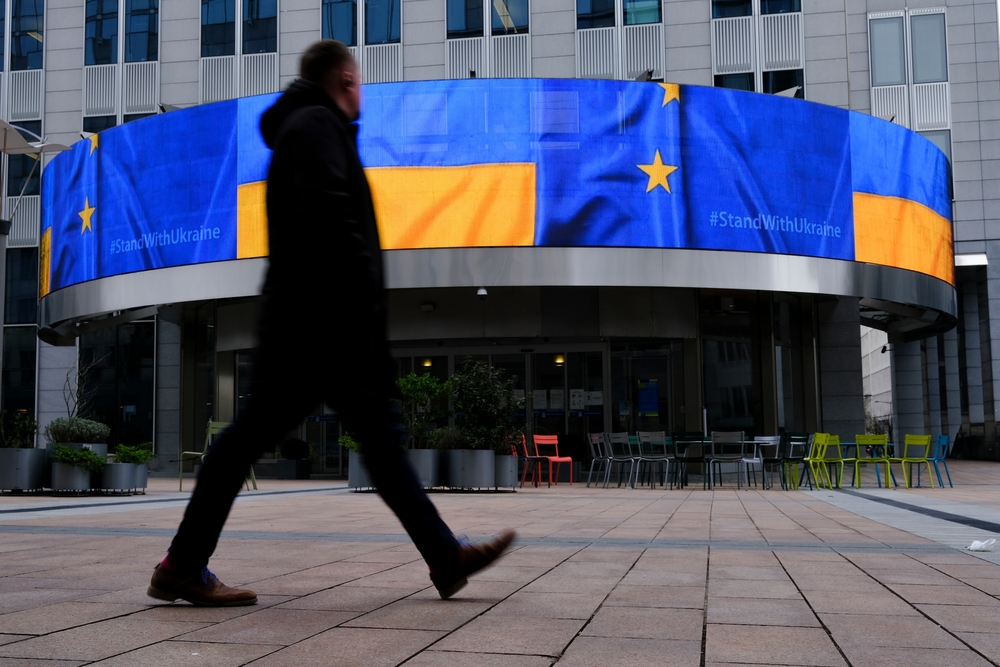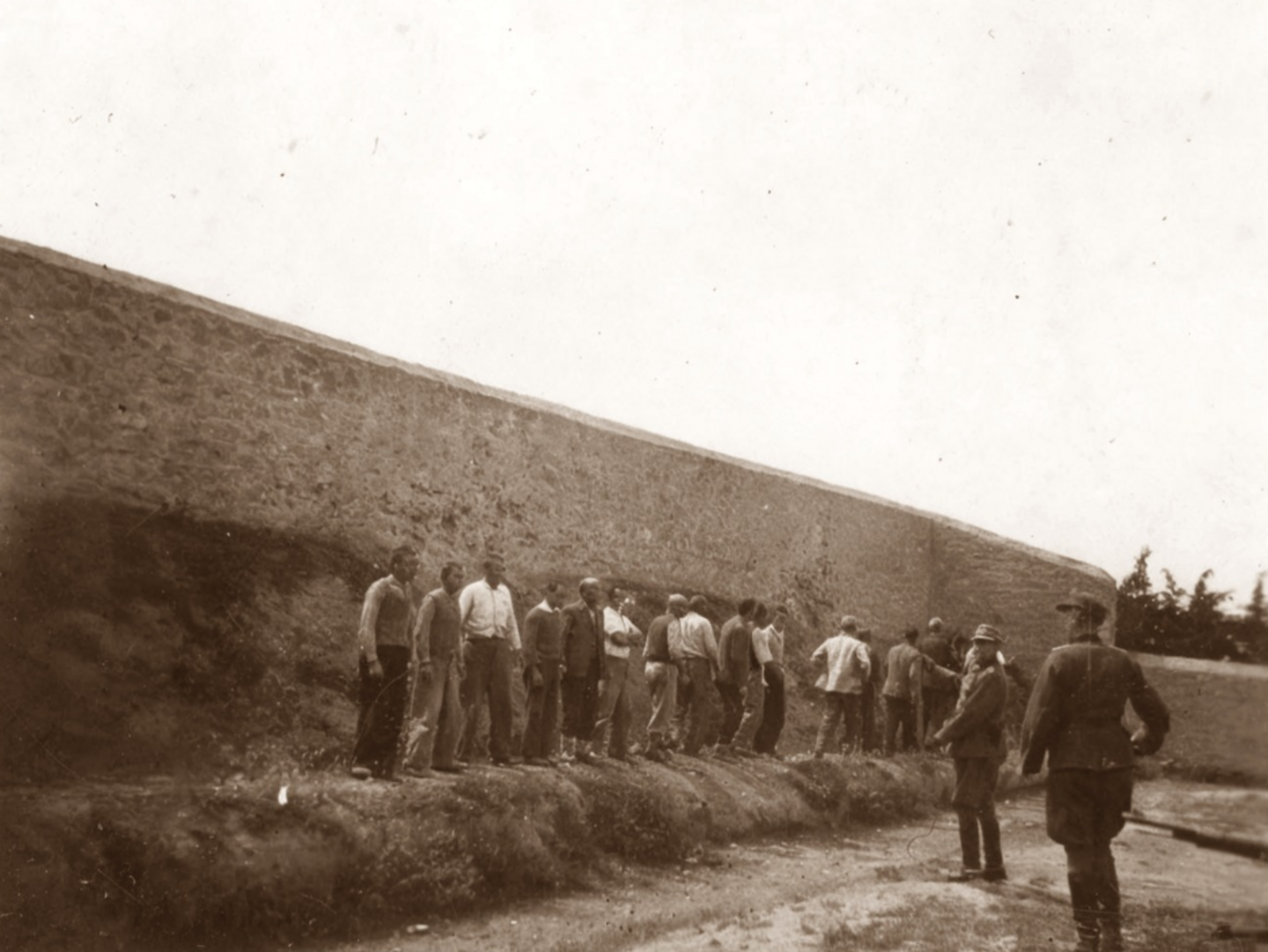Armenia and Azerbaijan slow motion negotiations
The attempts of Armenia and Azerbaijan to normalize their bilateral relations after the Azerbaijani conquest of Nagorno Karabakh continue in an anemic and controversial manner. A process that could lead Yerevan to change its constitution

Armenia-Azerbaijan-negoziati-al-rallentatore
Mount Ararat - © Serkant Hekimci/Shutterstock
With no agreement to normalise relations between Armenia and Azerbaijan coming as anticipated by the end of last year, talks between the two countries resumed at the end of January with another meeting of the border commissions. Their last meeting was held on the border at the end of November. Unlike previous meetings between the two commissions, however, statements issued afterwards did not detail what was discussed and there was no mention of when they would next meet.
Border demarcation and the unblocking of economic and transport communications are now considered the main stumbling block to an agreement. However, though a rare joint declaration offered a glimpse of hope, the two foreign ministers are still yet to meet again since Baku canceled one scheduled for Washington D.C. on 20 November. Armenia still favours negotiations hosted by the United States or European Union while Azerbaijan believes they should be held bilaterally in the region.
Since then, Armenia had also accused Azerbaijan of “regression” as the sides exchange draft versions of a proposed agreement while Baku charges that Yerevan is delaying the process and playing for time. Baku has also reversed its position on restoring Azerbaijan’s rail and road former connection to its exclave of Nakhchivan. In October, it announced that the route could pass through Iran but in early January it again demanded that it transit via Armenia as originally intended.
Various Armenian officials, however, still accuse Azerbaijan of planning to carve the route out by force if it is not resolved through negotiations. This was enough to push High Representative of the European Union for Foreign Affairs and Security Policy Joseph Borrell to warn of ‘severe consequences’ if a military incursion were to occur. He also urged Azerbaijan to return to EU-brokered talks which it refused to attend in October. In parallel, Russia called on Yerevan to return to talks mediated by Moscow.
But while some of the Armenian government’s key ministers sounded downbeat on the possibility of finalising a lasting peace with Azerbaijan, Prime Minister Pashinyan nonetheless said on 17 January that he was still optimistic one was in reach. However, on the occasion of Army Day on 28 January, Pashinyan announced that Armenia was ready to sign an arms limitation and non-aggression pact with Azerbaijan if it looked likely that any agreement was further delayed.
Baku has rejected such calls, with President Ilham Aliyev saying on 1 February that there was now “already de facto peace between Azerbaijan and Armenia and peaceful conditions have been prevailing on the border of the two countries for several months.” He further stated that “in order to bring this process to a logical end, a peace treaty must be signed and Armenia’s territorial claims against Azerbaijan must be ended.”
In Armenia, such claims have been interpreted as reason for Pashinyan’s comments on 19 January stating that Armenia needed a new constitution. Baku increasingly calls for guarantees that Yerevan will not claim land in the future given a controversial preamble to the existing constitution that makes reference to the 1990 Declaration of Independence. In it, territorial claims on Karabakh and even Turkiye are contained within, something Pashinyan hinted at last August.
A “confrontational narrative [has] kept […] Armenia in conflict with its neighbours,” he acknowledged. Pashinyan has also raised the issue of the symbolism on the existing national coat of arms which includes Mount Ararat, a common Armenian symbol though situated in neighbouring Turkiye.
The government nonetheless denies allegations that talk of constitutional change is the result of pressure from Azerbaijan and possibly Turkiye. Officials, however, do admit that Azerbaijan has raised the issue and that it was likely to be discussed. Constitutional changes after Pashinyan rose to power through street protests in 2018 were anyway on the cards given that they were postponed during the coronavirus pandemic in 2020.
With his ratings continually dropping since the 2020 war with Azerbaijan, Pashinyan has also mentioned that a new constitution should allow minority governments to come to power, leading some to speculate that a referendum would enable him to retain the premiership in elections currently scheduled for 2026. According to some analysts, the poor showing of his Civil Contract party in last year’s municipal elections in Yerevan is said to have shaken confidence of an outright win.
Armenia and Azerbaijan slow motion negotiations
The attempts of Armenia and Azerbaijan to normalize their bilateral relations after the Azerbaijani conquest of Nagorno Karabakh continue in an anemic and controversial manner. A process that could lead Yerevan to change its constitution

Armenia-Azerbaijan-negoziati-al-rallentatore
Mount Ararat - © Serkant Hekimci/Shutterstock
With no agreement to normalise relations between Armenia and Azerbaijan coming as anticipated by the end of last year, talks between the two countries resumed at the end of January with another meeting of the border commissions. Their last meeting was held on the border at the end of November. Unlike previous meetings between the two commissions, however, statements issued afterwards did not detail what was discussed and there was no mention of when they would next meet.
Border demarcation and the unblocking of economic and transport communications are now considered the main stumbling block to an agreement. However, though a rare joint declaration offered a glimpse of hope, the two foreign ministers are still yet to meet again since Baku canceled one scheduled for Washington D.C. on 20 November. Armenia still favours negotiations hosted by the United States or European Union while Azerbaijan believes they should be held bilaterally in the region.
Since then, Armenia had also accused Azerbaijan of “regression” as the sides exchange draft versions of a proposed agreement while Baku charges that Yerevan is delaying the process and playing for time. Baku has also reversed its position on restoring Azerbaijan’s rail and road former connection to its exclave of Nakhchivan. In October, it announced that the route could pass through Iran but in early January it again demanded that it transit via Armenia as originally intended.
Various Armenian officials, however, still accuse Azerbaijan of planning to carve the route out by force if it is not resolved through negotiations. This was enough to push High Representative of the European Union for Foreign Affairs and Security Policy Joseph Borrell to warn of ‘severe consequences’ if a military incursion were to occur. He also urged Azerbaijan to return to EU-brokered talks which it refused to attend in October. In parallel, Russia called on Yerevan to return to talks mediated by Moscow.
But while some of the Armenian government’s key ministers sounded downbeat on the possibility of finalising a lasting peace with Azerbaijan, Prime Minister Pashinyan nonetheless said on 17 January that he was still optimistic one was in reach. However, on the occasion of Army Day on 28 January, Pashinyan announced that Armenia was ready to sign an arms limitation and non-aggression pact with Azerbaijan if it looked likely that any agreement was further delayed.
Baku has rejected such calls, with President Ilham Aliyev saying on 1 February that there was now “already de facto peace between Azerbaijan and Armenia and peaceful conditions have been prevailing on the border of the two countries for several months.” He further stated that “in order to bring this process to a logical end, a peace treaty must be signed and Armenia’s territorial claims against Azerbaijan must be ended.”
In Armenia, such claims have been interpreted as reason for Pashinyan’s comments on 19 January stating that Armenia needed a new constitution. Baku increasingly calls for guarantees that Yerevan will not claim land in the future given a controversial preamble to the existing constitution that makes reference to the 1990 Declaration of Independence. In it, territorial claims on Karabakh and even Turkiye are contained within, something Pashinyan hinted at last August.
A “confrontational narrative [has] kept […] Armenia in conflict with its neighbours,” he acknowledged. Pashinyan has also raised the issue of the symbolism on the existing national coat of arms which includes Mount Ararat, a common Armenian symbol though situated in neighbouring Turkiye.
The government nonetheless denies allegations that talk of constitutional change is the result of pressure from Azerbaijan and possibly Turkiye. Officials, however, do admit that Azerbaijan has raised the issue and that it was likely to be discussed. Constitutional changes after Pashinyan rose to power through street protests in 2018 were anyway on the cards given that they were postponed during the coronavirus pandemic in 2020.
With his ratings continually dropping since the 2020 war with Azerbaijan, Pashinyan has also mentioned that a new constitution should allow minority governments to come to power, leading some to speculate that a referendum would enable him to retain the premiership in elections currently scheduled for 2026. According to some analysts, the poor showing of his Civil Contract party in last year’s municipal elections in Yerevan is said to have shaken confidence of an outright win.









